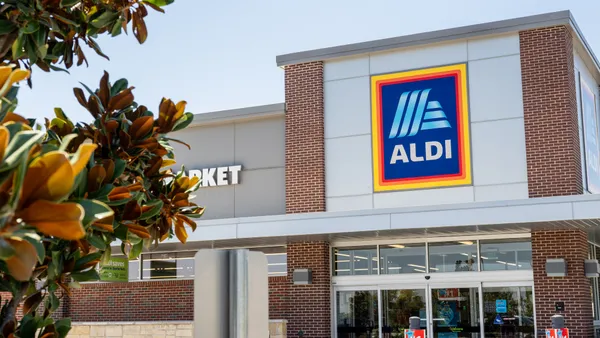Dive Brief:
- CVS Health plans to close some 900 stores over the next three years, the drugstore retailer announced in a press release Thursday.
- The company said it would shutter around 300 stores per year, starting in spring 2022, after "evaluating changes in population, consumer buying patterns and future health needs to ensure it has the right kinds of stores in the right locations."
- CVS also announced that Michelle Peluso, currently chief customer officer, is set to become co-president of CVS's retail business in January along with Prem Shah, who joined in 2013 and was named on Thursday as CVS's first chief pharmacy officer. Neela Montgomery, current president of CVS Retail/Pharmacy, is leaving the company.
Dive Insight:
Even as it moves to close a significant chunk of its business, CVS said it is working on new store formats as it continues its expansion as a general health and wellness destination.
Going forward, the retailer said it is focused on three store models: sites centered on primary care services, enhanced "HealthHub" locations dedicated to everyday health products and services, and traditional pharmacy stores.
"Our retail stores are fundamental to our strategy and who we are as a company," CVS CEO Karen Lynch said in a statement. "We remain focused on the competitive advantage provided by our presence in thousands of communities across the country, which complements our rapidly expanding digital presence."
As of Sept. 30, CVS had more than 9,900 retail stores as well as 1,200 walk-in medical clinics.
The company couched the decision to close a tenth of its footprint in terms of consumer needs and its omnichannel strategy. Some questioned that frame, though.
"At a time when retailers like Ulta, Sephora and many DTC beauty brands are looking to open stores in a bid to reach more customers, CVS's decision to close 900 of its shops seems odd," Neil Saunders, managing director of GlobalData, said in emailed comments. "This is even more so as shopping locally, which by virtue of its locations CVS caters for, has become more significant during the pandemic."
Saunders noted that CVS has lost share in beauty and personal care to other retailers such as Target, Walmart, Ulta, Sephora and others. He described CVS's retail stores are "shabby" and "stuck in the past with bad lighting, depressing interiors, messy merchandising, and a weak assortment of products."
All of which, in Saunders' view, could explain the need for closures. "It is inevitable that some branches will fail and need to be pruned," Saunders said. "But such a savage and wholesale trimming of the chain underlines how far the rot has set in because retail has been a neglected part of the business. That is something CVS now needs to address with urgency if it is to make the rest of its chain deliver superior results."
CVS said expects to record an impairment charge of up to $1.2 billion related the closures.











